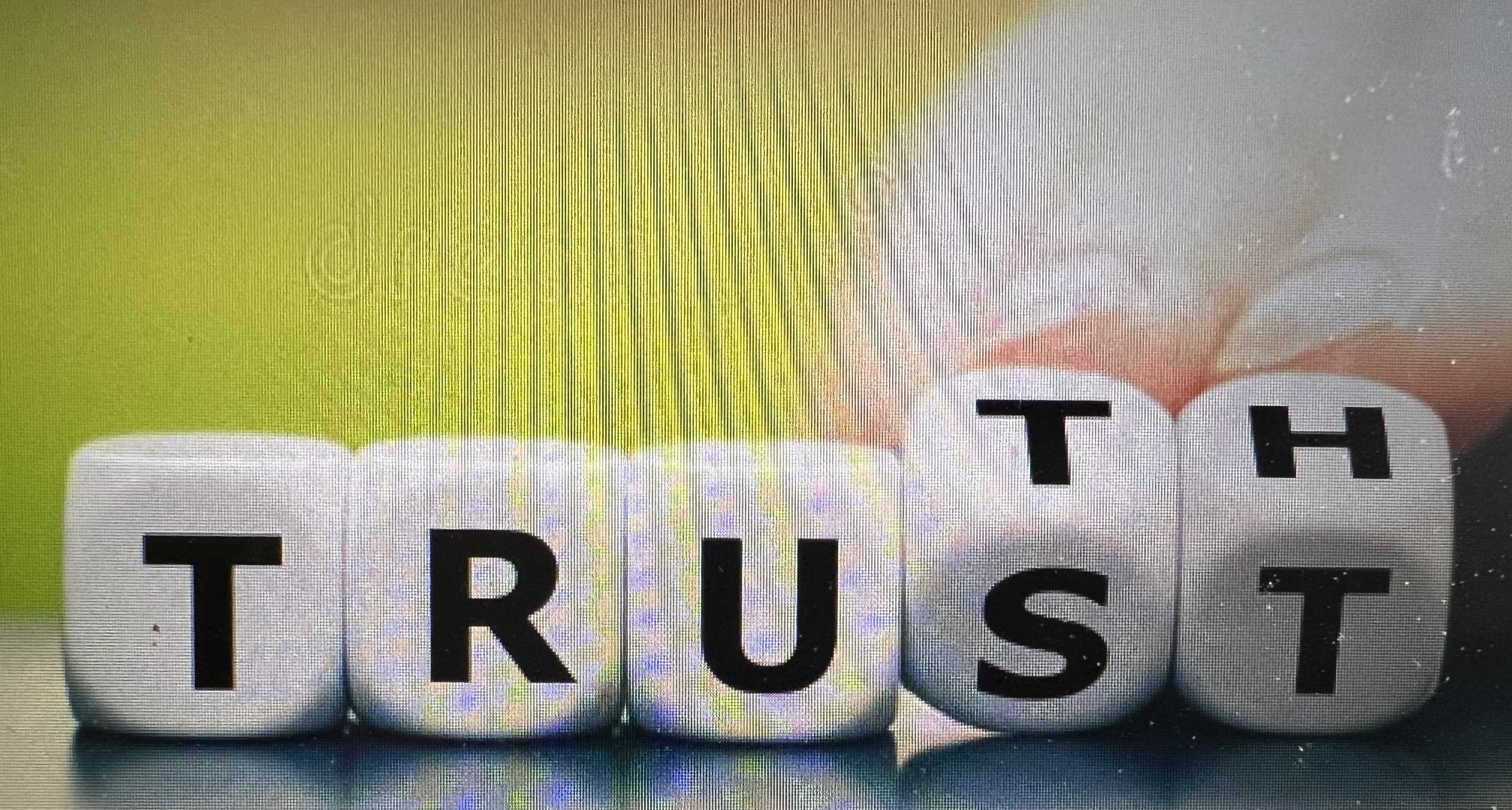Did I Forget to Tell You… to Trust those who are TRUSTWORTHY?
I am confident that I have said (over and over) that we are to love everyone. But being lavish and generous with love does not mean that it is advisable to trust those who are untrustworthy.
Did I forget to tell you how to know who to trust?
I worry about that gap/potential misunderstanding as I watch people routinely trust news outlets that regularly share falsehoods without any corrections or retractions. I worry when I see people trust people who regularly and unrepentantly lie. I worry when I see people accept lies and misinformation without checking the motives, backgrounds or funding stream of those who are spreading misinformation. Trustworthiness does not seem to be a matter of concern in the sensational climate we live in.
At least in terms of the church, I did not lead a sheltered life. Every Preacher’s Kid gets a front row seat to people – yes, church people!—who give into the temptation to misrepresent, alienate and insult others. It was crazy painful as a child where I had to watch in a bystander (though deeply affected) position. Although I am well past childhood and, as a pastor, I am no longer in the bystander role, watching people torpedo others has not gotten any less painful to watch.
Knowing who to trust can make a life-and-death difference (like when strangers try to entice children with candy and sweet talk to get them to get into their vehicle). Knowing who to trust can make a soul-sucking difference in relationships as well. And, now, more and more often, the destructive dynamics of untrustworthy people are determining whether people want to participate in church at all. The wounded are leaving churches in significant numbers.
As a pastor, I have watched the simplistic and often unworthy ways that people give away their trust. how people sometimes trust people they are related to – even when they know that what their relatives are doing is wrong.
Or they trust longtime church members and friends even when they know their longtime friends are engaging in damaging behavior. Sometimes, people trust “code words and phrases” that speak to things they hold dear “conservative”, “family values”, “biblical”—even when those applied titles are, in reality, the opposite of the allegiances people cherish. Sometimes, people trust their neighbors/friends/church/political party that they have grown up in – even when they have enough history to have seen quite clearly that automatic trust is not warranted. Trusting the untrustworthy is destructive – for the person who trusts and for the person who is the recipient of undeserved trust. The person who trusts supports things that betrays their true values and the untrustworthy exploit others which is damaging to their spiritual integrity. This dynamic keeps a lot of sin in place.
So how do you know if someone is trustworthy?
Look for humility and apologies, not perfection. Nobody is perfect. Trustworthy people know they make mistakes. They admit they have made mistakes. They apologize. They try to make things right when they misjudge or miscalculate. People who don’t recognize their mistakes or admit their mistakes are highly likely to repeat their mistakes. Trustworthy are humble people. They do not mind being corrected or admitting they made a mistake.
Look for honesty – not denials and cover-ups. Trustworthy people are honest. That’s why – when they make mistakes—they are glad to correct them. One of the stunning – and, potentially, most important gifts of technology is recordings. People lie about what they say – and, when there are recordings of them in their own voices, we have the gift of knowing the truth. There is no trustworthiness in those who lie. Period
Look for perspective and compassion – not sensationalism, insulting and diminishing others. Trustworthy people tell the whole story. This is related to honesty – but it is bigger than that. Perspective knows how to put things in context. And, for Christians, the most important context is compassion, the Golden Rule and treating others the way Christ treated us.
Love everyone. But be careful who you trust. Jesus loved his disciples – but He knew their shortcomings (like Peter who swore he would never deny Jesus….Jesus knew better and called Peter out on it). Over and over, Jesus did not let the shortcomings of others keep Him from loving them. But He did not trust whatever they said. He wouldn’t have been much of a teacher if he fell hook, line and sinker for whatever they said.
Love like Jesus. We only make things worse – for ourselves and for others when we trust the untrustworthy.
